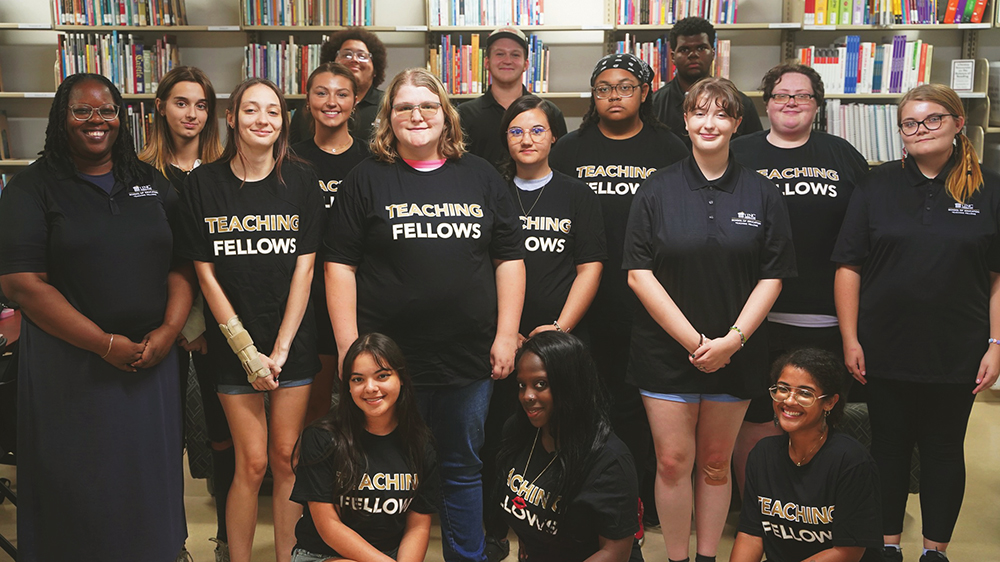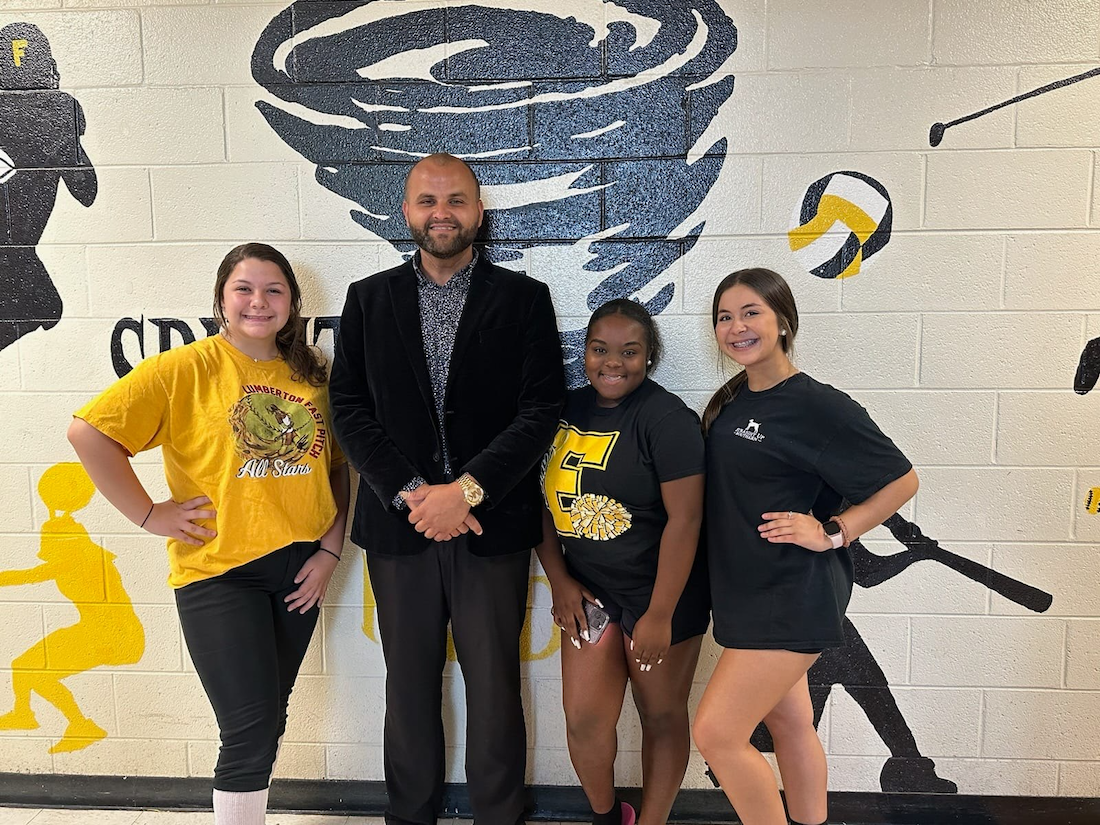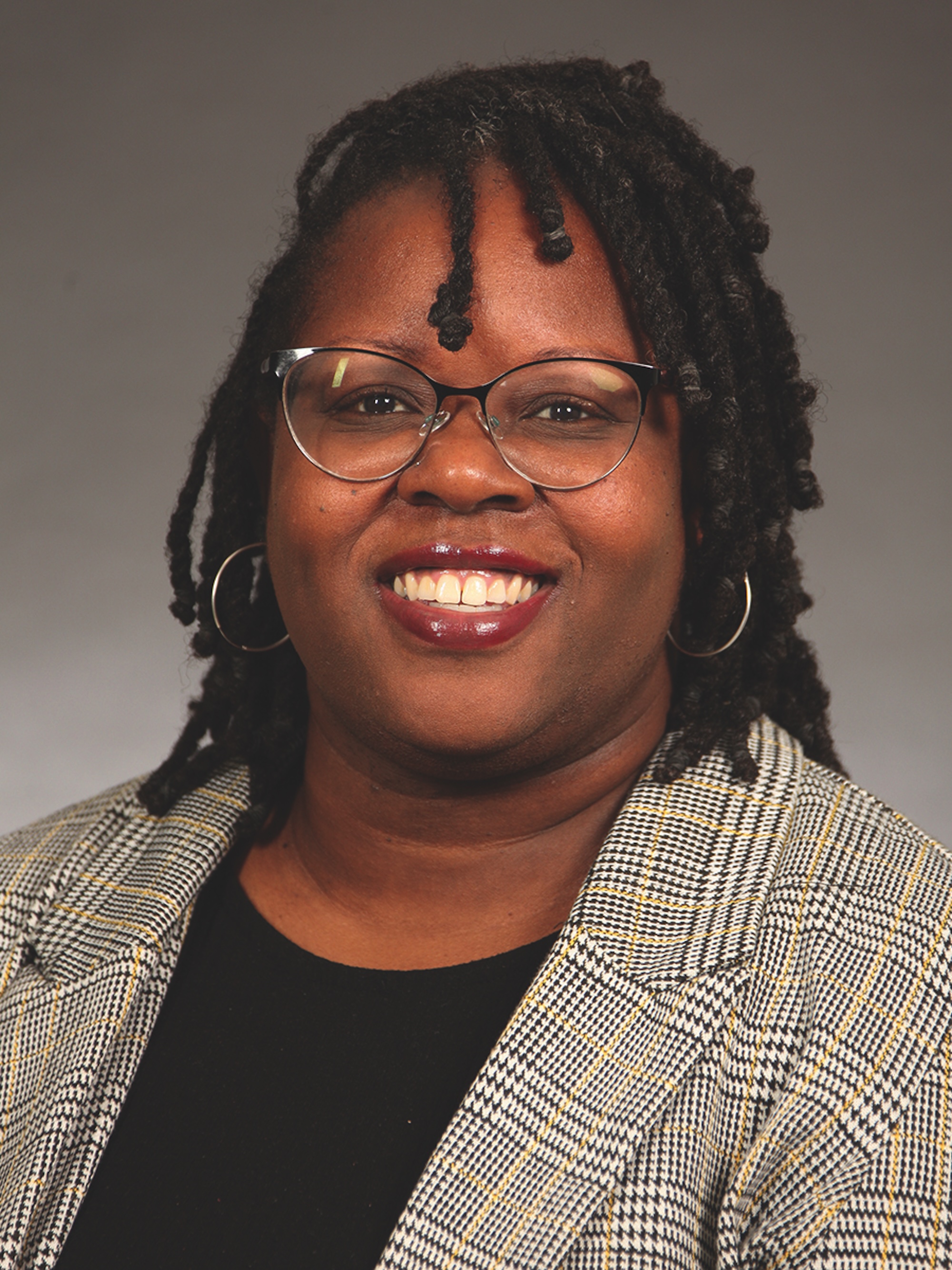UNCP’s Teaching Fellows – A Pipeline For Success

For Anthony Barton, leading a school isn’t only a job — it’s a calling. Now in his second year as principal of Fairmont High School in Robeson County, the two-time UNC Pembroke graduate is nine years into a career in administration, a path that began in the classroom as a teacher. Barton credits the North Carolina Teaching Fellows program at UNC Pembroke with shaping his career. From 2004 to 2008, the program didn’t just help him financially — it provided a community, a support system and leadership training that prepared him for life in education. “Teaching Fellows was a game-changer for me,” Barton said. “Had it not been for Teaching Fellows, I don’t know if I would have finished school.” Barton’s story is one of many that highlight the lasting impact of the Teaching Fellows program, which is now being revived at UNCP. Launched by the North Carolina General Assembly in the 1980s, the Teaching Fellows program has long been a pipeline for preparing educators. UNCP joined in 1996, providing students with leadership training, professional development and financial support in exchange for a commitment to teach in North Carolina public schools.

The program was paused after legislative funding was cut in 2012 — but its impact never faded. State leaders reinstated funding in 2017, and UNCP rejoined the program in 2021, ready to continue its mission of producing exceptional educators. “The Teaching Fellows program not only equips future teachers with the skills they need but instills a deep sense of purpose and commitment to their chosen craft,” said Dr. Tracy Mulvaney, dean of the School of Education. “Our Teaching Fellows at UNCP feel supported, and they see the benefits of that support as they progress in their careers.” The legacy of Teaching Fellows runs deep across North Carolina. From its inception in 1986 until 2012, more than 8,500 students graduated from the program at participating colleges and universities, including UNCP.
Nearly two-thirds of those graduates were still employed as teachers or school administrators six years after graduation. Barton is one of them. “When I enrolled as a freshman Teaching Fellow at UNCP in 2004, the university already had a reputation for creating a family-like environment and providing leadership opportunities. That support was just as critical to my success as anything I learned in the classroom,” Barton said. “It gave me a community,” he continued. “We lived together, went to class together and formed lifelong relationships. The opportunities UNCP provided — travel, professional development and exposure to different people and perspectives — enriched my experience. Had I not been a Teaching Fellow, I doubt I would have been exposed to them.”
Hands-On Learning For Future Educators
Dr. Arine Lowery, director of UNCP’s Teaching Fellows program, said providing students with real-world professional experiences remains an integral part of the curriculum. “ Last year, our Teaching Fellows attended the Council for Exceptional Children conference in Raleigh,” Lowery said.

“The students loved it. They were able to interact with leading experts in special education and gain insight into best practices for working with children with special needs.” Experiential learning opportunities like these are shaping the next generation of educators. Jaiden Tillman, a junior in the Teaching Fellows program, recalled visiting the Ron Clark Academy in Atlanta, a nationally renowned school recognized for its innovative teaching methods. “We visited different classrooms and observed how their teachers teach,” said Tillman. “I learned different teaching methods and found new ways to connect with students. It was an experience that helped you remember your ‘why’ for getting into education.”
When Teaching Fellows was revived in 2017, it came with a crucial change: For the first time, graduate students were eligible. Traditionally, the program had been limited to undergraduates, but as the nationwide teacher shortage worsened, school districts began looking beyond traditional education pathways to fill vacancies. “Nationally, we’re in a critical teaching shortage,” Mulvaney said. “Where you would have 200 applicants for a teaching position in the past, those numbers have decreased substantially. Years ago, school superintendents weren’t supportive of lateral entry, and now it’s just part of the landscape.”
UNCP’s Master of Arts in Teaching (MAT) program is attracting Teaching Fellows as a result, Lowery said. “These students already hold a bachelor’s degree in another field but now seek their initial teacher licensure through our MAT program,” Lowery said. “It’s another pathway into education, and our program supports them every step of the way.” As a school principal, Barton believes expanding Teaching Fellows to graduate students was the right move. “I’m excited they’ve opened it up to different groups of people,” Barton said. “Some of the best teachers I’ve hired have come through the nontraditional route. It’s smart to look at people who have done other things and consider them for a teaching role.” Cynthia Liles is among the first Teaching Fellows to graduate under the new model, earning her MAT in Special Education in 2024. “When I first applied to be a Teaching Fellow, I didn’t expect to get in,” said Liles, now a special education teacher at Grady Brown Elementary School in Hillsborough, North Carolina. “But everyone was on board to help me. I liked the fact that I wasn’t alone — that I always had someone to guide and support me.”
More Support, More Success
UNCP’s Teaching Fellows program is growing fast. The university enrolled 45 Teaching Fellows in 2024-25 — more than double the previous year’s 20. Statewide, Teaching Fellows enrollment has also surged, with 462 students accepted for the 2024-25 academic year — the most since the program resumed in 2017. Beyond numbers, Lowery is encouraged by the support system in place for Teaching Fellows even after graduation. “It’s one thing to graduate but quite another to find success as a new teacher,” Lowery said. “Those first few years can be tough, and that’s where we lose people.” A state-funded coaching model now provides individual mentorship and classroom support for Teaching Fellows during their first two years of teaching. “These recent graduates have someone assigned regionally across the state who can observe them, co-teach a lesson or support them through a difficult conversation,” Lowery said. “That kind of one-on-one coaching can be the difference between a teacher staying in the classroom or leaving the profession.” For Lowery, the goal is clear: Prepare Teaching Fellows to lead in North Carolina’s classrooms and shape the future of education. “A North Carolina Teaching Fellow doesn’t just enter the classroom — they arrive prepared,” Mulvaney said. “They bring leadership skills, professional experience and a commitment to making a difference. And that’s what North Carolina’s students deserve.”